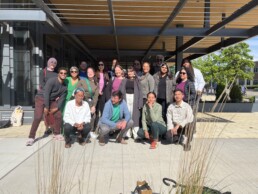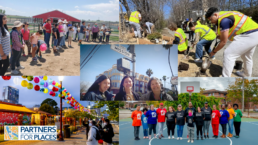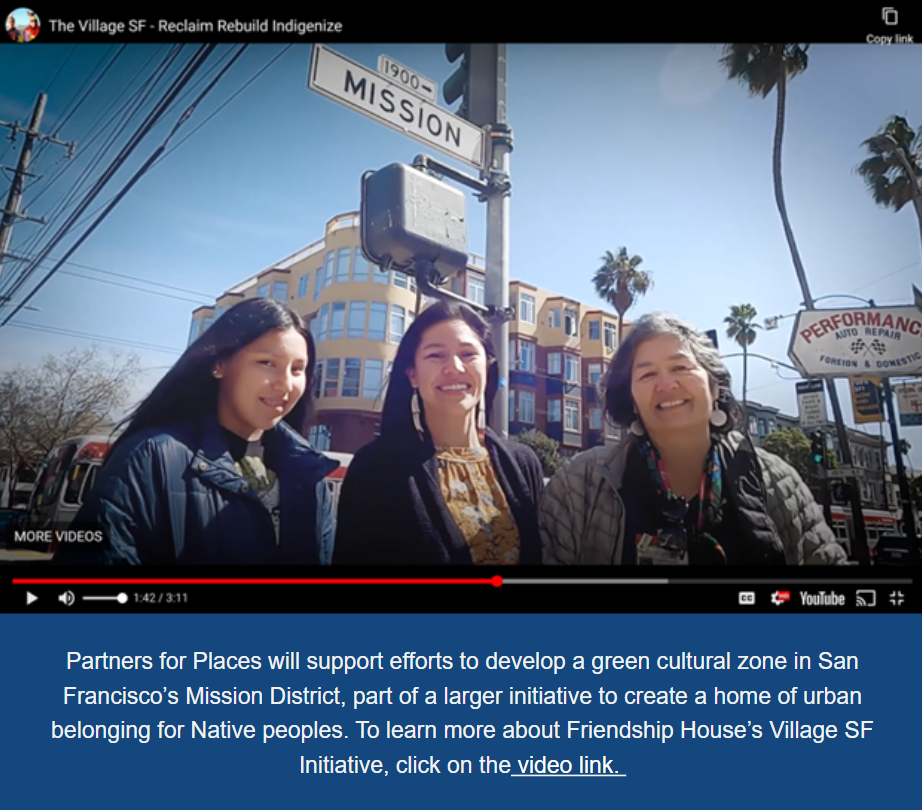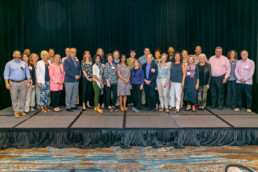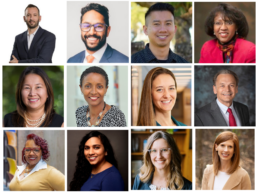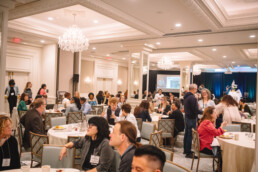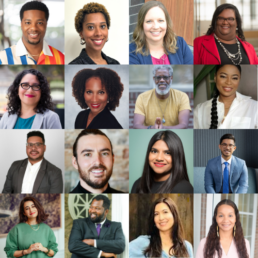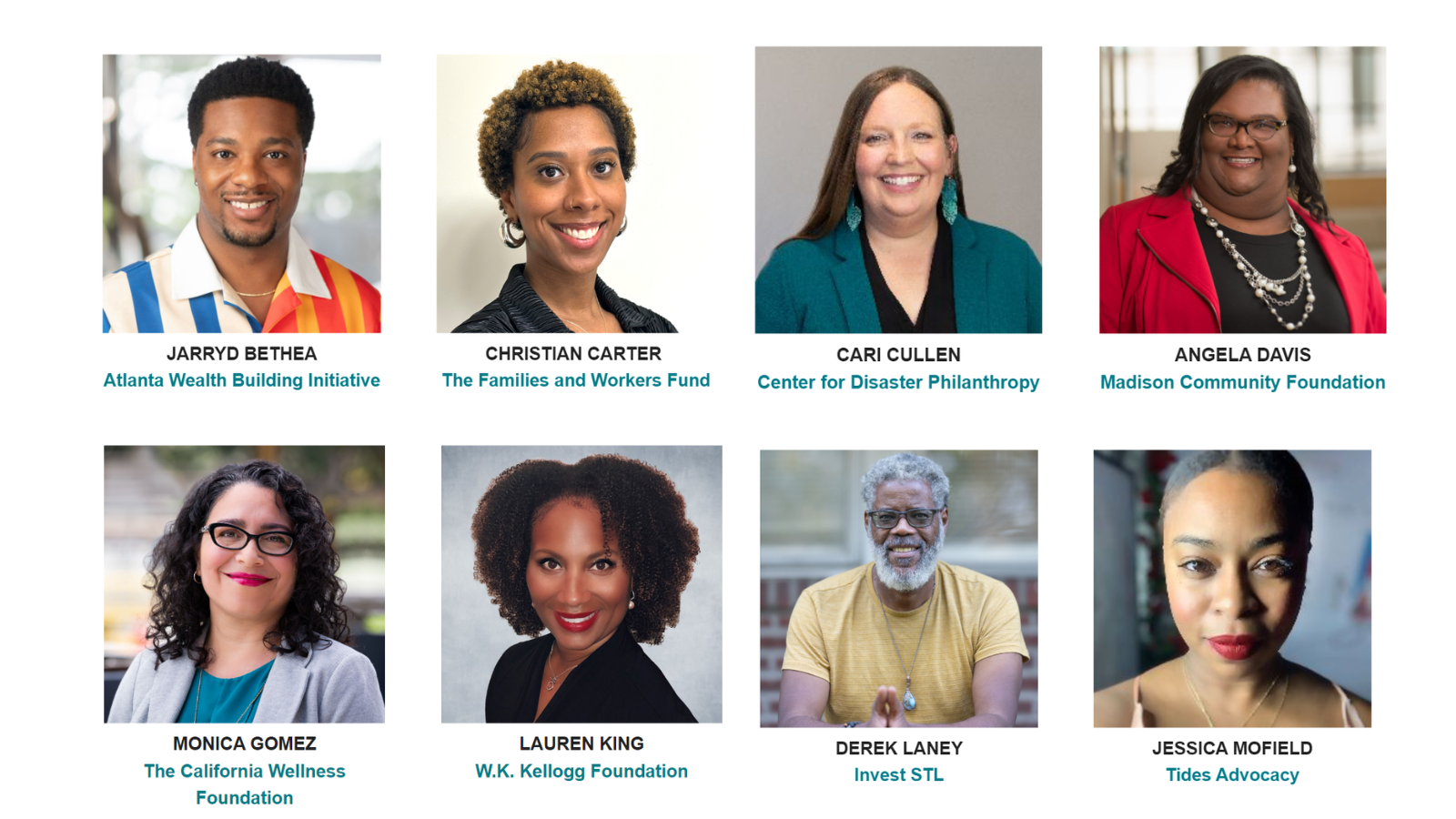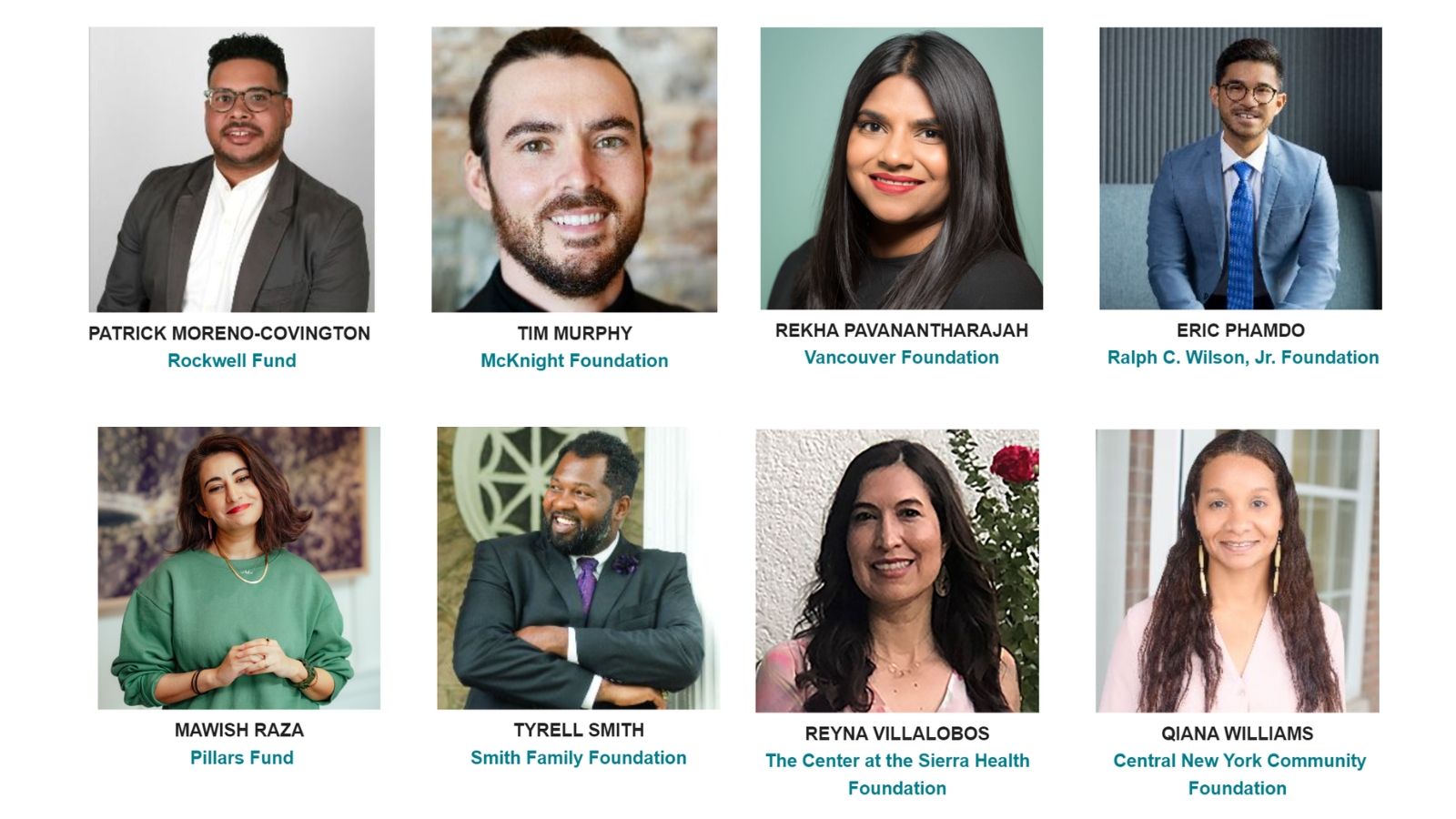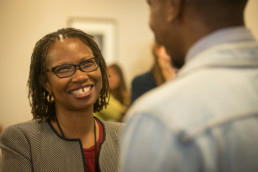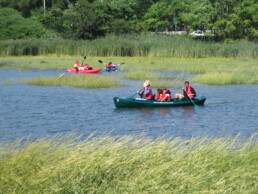Going PLACES: What Does It Mean to be Remembered?
BY Jarryd Bethea, PLACES Fellow and Senior Research Associate, Atlanta Wealth Building Initiative
The time I spent during our recent PLACES Fellowship site visit in Cleveland demanded that I abandon the assumptions I arrived with: It's just another city in the Midwest.
Leaving those assumptions behind meant that I could become better acquainted with Cleveland, practice community with the residents who are fervently working to shape the city’s outcomes and open myself to the lessons ready to be taught.
I want to begin by acknowledging that the land we were in community with (which is now settled as Cleveland, Ohio) belongs to the Mississauga, Kaskaskia, and the Erie Native American people.
I have always regarded land acknowledgments as progressive, seemingly the first step of a reparative approach. Cynthia Connolly of the Lake Erie Native American Council provided a timely reminder that a land acknowledgment will never suffice in place of the full context and support of her people. The termination era from the 1950s-1960s is characterized as the period where the U.S. government acted to assimilate Native Americans into western society within the United States. The Bureau of Indian Affairs offered incentives such as jobs and economic security to those willing to relocate to urban cores.
Cleveland was among these originally designated cities.
Unfortunately, many of the promised benefits were not realized. Despite the broken trust and false offerings made to the Indigenous peoples, a resilient and interconnected community in Northeast Ohio began to thrive.
There are many stories and histories of shared relationships between Indigenous and Black communities of Ohio — one of which is St. John’s Episcopal Church.
This church held gatherings for Indigenous folks, providing a space for them to congregate and mobilize during the termination era. St. John’s is also known to have been one of the last stops on the Underground Railroad for enslaved Blacks seeking respite from the country’s injustices.
This grounds me in the reminder that Indigenous peoples and Black Americans in this country share an extensive number of experiences, including their mistreatment and displacement. This reminder is humbling — and humility remains a core tenet of learning.
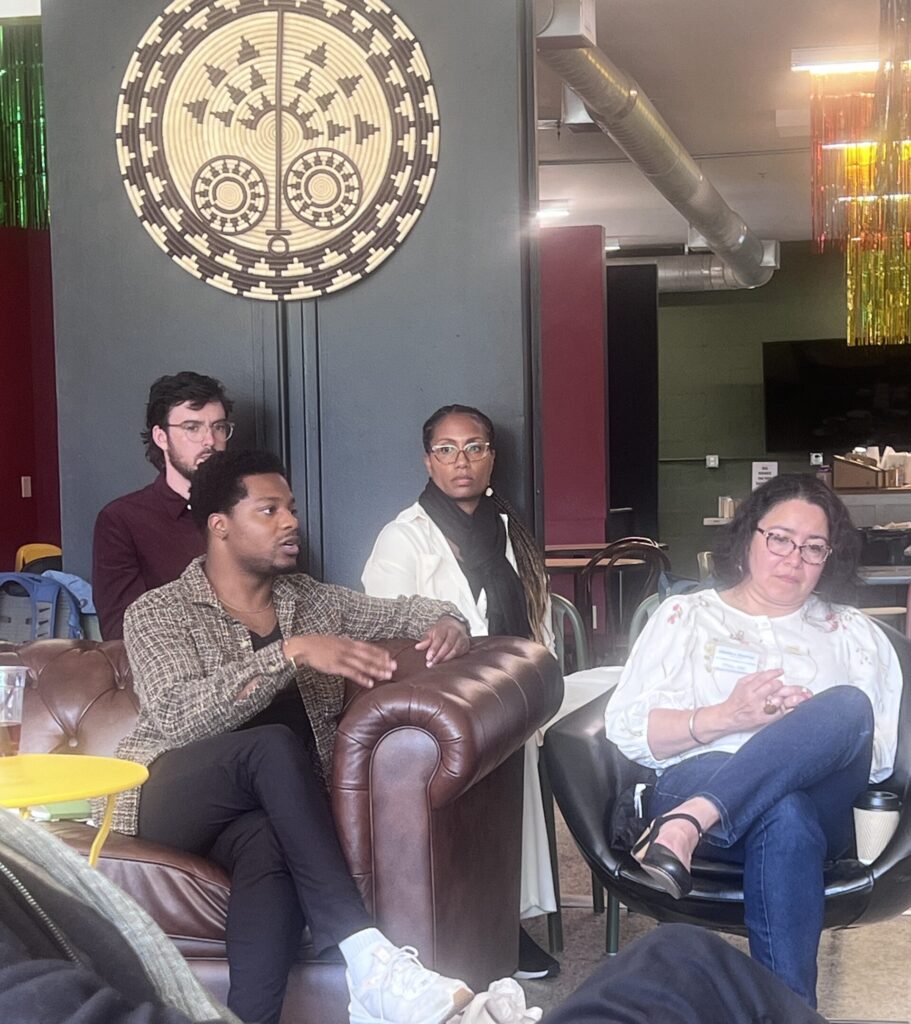
PLACES Fellow Jarryd Bethea and other members of the 2024 PLACES Cohort gathered in Cleveland in May.
As a policy practitioner at the intersection of economic development and community advocacy, my work centers on wealth-building practices that emphasize the collective power of Black communities across the South.
Much of the disruption and displacement of Black communities in Atlanta — the primary geographic area for my work — is due in part to extraction and the desire to create something new. This is not dissimilar to the plight of America’s Indigenous communities, who have also borne the violence of erasure rooted in racism. I look to our Indigenous brothers and sisters for lessons in fighting to maintain our whole identities, stories, culture and communities against American settler colonialism.
Erasure as a tool of oppression is still settling with me as a foundational truth of white supremacy and I continue to sit with the ways it will manifest.
As the country’s policy landscape experiences a retrenchment — evidenced by the overturning of Roe v. Wade, the ruling on the Fearless Fund, and the passing of restrictive legislation whose impact and legacy of harm cannot be understated when discussing marginalized identities — it is increasingly important that we mobilize ourselves, tell our stories and embody the forms of joy we engage in. Cleveland is a city that has set an example for all three.
Let me share just a few of the folks we met in Cleveland and how they embody the above call to action:
The work of Jazmin Long and Tonae Bolton at Birthing Beautiful Communities is a lionhearted act of care that embraces mothers from expectancy to well after the baby has arrived. Born out of the need for better maternal care for Black mothers, they have scaled their organization to actively support between 250 and 300 clients.
Pairing their practice with research and advocacy, the organization is striving to make a difference in Ohio’s healthcare system. While the work may be difficult, Jazmin still made time to center joy during an impromptu karaoke session with our PLACES cohort.
We met with the Partnership for Equitable and Resilient Communities (PERC), a collaborative of funders, city officials, and community organizers working to advance equitable development in Cleveland, utilizing public and private dollars in service of Black, Latino/a/x, and Indigenous communities. It was inspiring to see a group so cohesive and supportive of one another — offering the reminder that developing deep relationships rooted in care is a prerequisite for impactful work.
And finally, Rid-All Green Partnership. Located in a part of Cleveland known as the Forbidden Triangle, this community space was a longtime site of illegal dumping, disinvestment and neglect. It has now been transformed into a 15-acre urban farm that encompasses a community kitchen and offers environmental programs while tackling food insecurity. The radical repurposing of this space has yielded a valuable and joy-filled asset to the community.
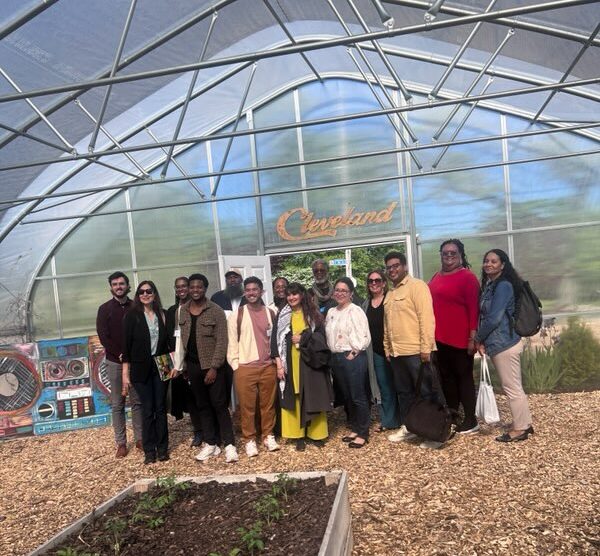
The PLACES Fellows visited the Rid-All Green Partnership, which turned an empty and forgotten piece of land in Cleveland’s Kinsman Neighborhood into an urban farm.
My PLACES site visit shared many similarities with my current work supporting local policy. Most of all, there was an emphasis on the need for Black and Indigenous residents to access self-determination and decide for themselves how they would like to see their communities change.
Admittedly, Cleveland is changing in a very different way than Atlanta, as it is considered a city in decline. Once home to almost one million residents, it now has a population of only 360,000.
However, Kaela Geschke with Trust for Public Land believes that Cleveland may become a climate refugee city in the future due to rising global temperatures and the city’s idyllic positioning near fresh water and mild temperatures. This migration and its impact on the city’s economic development remains to be seen.
My time in Cleveland was replete with witnessing acts of service that left me with the desire to learn more and do more. For now, I believe it remains essential that we underscore self-determination in community outcomes to debase erasure as a tool of racism.
About the Author
 Jarryd Bethea is a member of TFN’s 2024 Fellowship Cohort and a senior research associate at the Atlanta Wealth Building Initiative.
Jarryd Bethea is a member of TFN’s 2024 Fellowship Cohort and a senior research associate at the Atlanta Wealth Building Initiative.
Featured image: The 2024 PLACES Fellows gathered in Cleveland for the third site visit of their fellowship year.
Meet the New Partners for Places Grantees: Five Communities + Five Community-led Sustainability Projects
BY TFN Staff
Fix a flood-prone pedestrian path so neighbors can safely walk home. Provide climate-emergency training for people living in prefabricated houses. Create a resilience plan to ensure one of the oldest Chinatowns in the country remains safe and vibrant for generations to come.
These are just a few of the projects that will be supported by the latest round of Partners for Places grants, which help fund efforts to create more equitable and resilient communities across the U.S.
In all, five U.S. communities will receive more than $1.3 million in Partners for Places matching grants to support sustainability efforts that bring together local governments, place-based funders, and frontline community groups.
The five communities receiving this latest round of Partners for Places grants are: Boston, Mass.; Boulder, Colo.; Bridgeport, Conn.; Oakland, Calif.; and San Francisco, Calif.
Successful Partners for Places projects advance much-needed climate planning and sustainable solutions in communities both large and small.
With the support of matching local funders, these projects also help build bridges between city officials and the communities that bear the brunt of environmental injustice but are often left out of decision-making processes.
Meet the new Grantees!
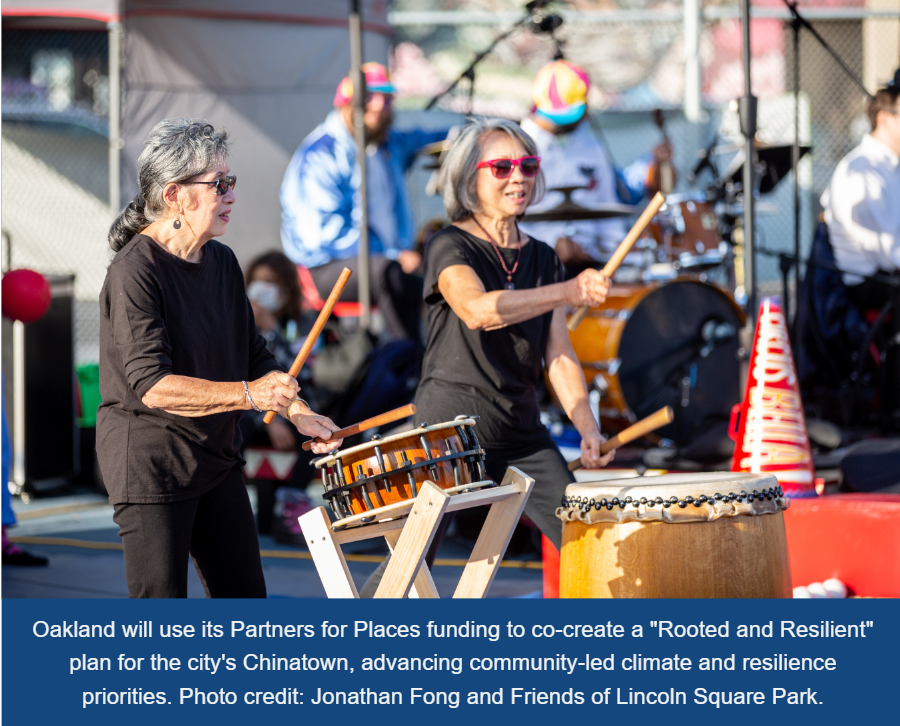
How will these Partners for Places grants help local sustainability efforts?
In Boston, the grants will support the community outreach and planning required to transform a one-acre vacant lot in East Boston into a vibrant agricultural and educational community center. The funds will also support efforts to improve a pedestrian greenway prone to severe flooding that submerges the path, rendering it impassable and depriving residents of safe passage through their neighborhood.
Bridgeport will use its Partners for Places funds to build community resilience through collaborative environmental education, including the co-creation of a climate resilience curriculum that can be used by community leaders throughout the city. Their goals include building trust and understanding between frontline community residents and local decision-makers, and to ultimately establish a training program where community leaders can share knowledge and empower their fellow residents to participate in climate-related policymaking.
In California, Partners for Places will support efforts to create thriving and climate-resilient urban areas that provide cultural and social resources for Indigenous and immigrant communities.
In Oakland, the grants will support the co-creation of a resilience plan for the city’s Chinatown, one of the oldest Chinatowns in the U.S. The project centers on developing the leadership of community members to advocate for local priorities that advance equitable climate and community resilience strategies. The grant will also help ensure that critical services and social connections remain intact while a local community center is converted into a resilience hub.
In San Francisco, Partners for Places will support efforts to develop a green cultural zone in the city’s Mission District, a plan that aims to transform more than a mile of sidewalks, streets, buildings and storefronts into a thriving, greened, biodiverse neighborhood community. The concept is part of a larger initiative to create a home of urban belonging in the heart of San Francisco where the city’s Native peoples can connect with services, with nature, with each other, and with their cultures.
In Boulder, the funds will strengthen partnerships with local governments and center the experience, wisdom, and voices of frontline community members. Efforts supported by these funds will include community-led preparedness training for climate emergencies, with a focus on manufactured home parks; ensuring impacted residents are educated and empowered to advocate for equitable cleanup of toxic coal ash; and supporting a grassroots group of Latina leaders working to address the impacts of climate change and improve the social and economic wellbeing of the community.
The Boulder project advances the work of the local Climate Justice Collaborative, created with the support of an earlier Partners for Places grant — one of the many examples of how these local relationships can lay the groundwork for even more action and collaboration at the grassroots level.
About Partners for Places
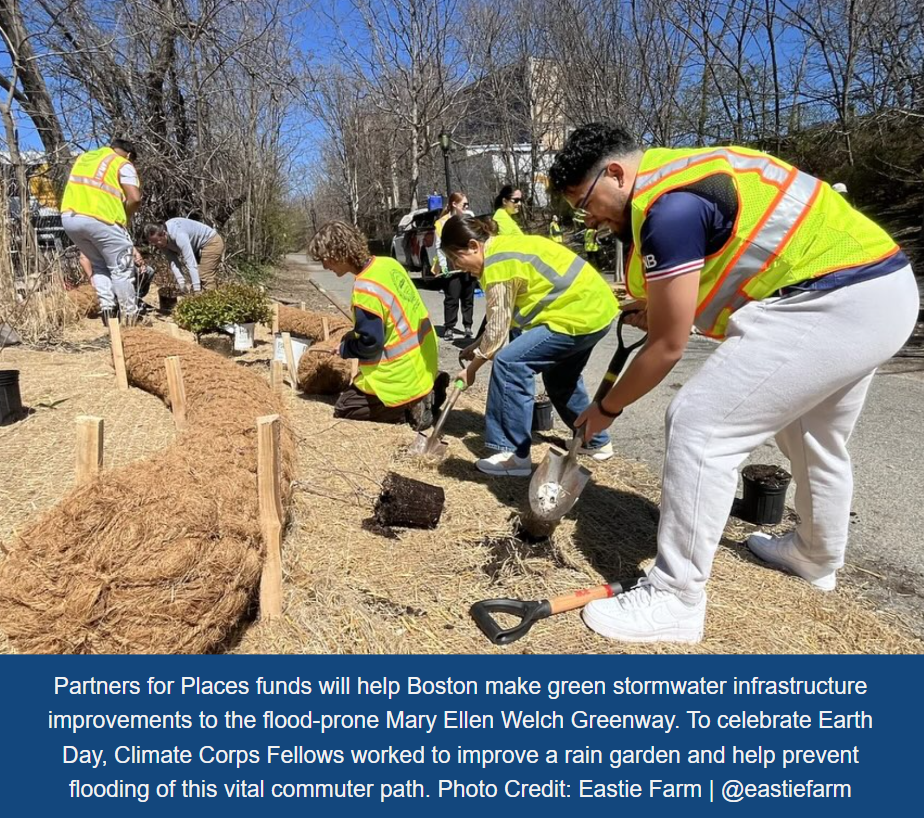
Partners for Places, led by The Funders Network (TFN) in partnership with the Urban Sustainability Directors Network (USDN), will provide $718,000 in funding to these five communities through the grant program. With contributions from local matching funders, a total of $1,308,000 will be committed to fund sustainability projects in these selected communities. This grant cycle includes a total of $223,000 in Partners for Places grants and local matching funds awarded to the green stormwater infrastructure project in Boston.
To date, Partners for Places has awarded nearly $12 million across North America in this successful matching grant program, leading to more than $23 million in investments.
The matching grant program brings national funder investors together with place-based funders to support equitable, sustainable climate action and green stormwater infrastructure projects. The program is currently supported by The JPB Foundation, The Kendeda Fund, The Kresge Foundation, and the Pisces Foundation. One or more local foundations are required to provide at least a 50% matching grant.
Matching Funders and Community Partners
The latest Partners for Places grant recipients, matching funders and frontline community-led groups are:
- Boston, Mass. ($118,000): To support community outreach and planning to improve stormwater infrastructure on a flood-prone pedestrian pathway and transform vacant lot in East Boston into a vibrant agricultural and educational community center. Frontline community group: Eastie Farm. Matching funders: The Boston Foundation and Heinemann Foundation ($105,000).
- City and County of Boulder, Colo. ($150,000): To strengthen partnerships with local governments and center the experience, wisdom, and voices of frontline community members to foster collaboration and equitable climate action projects. Frontline community group: Community-Led Preparedness Training for Climate Emergencies (CPT). Matching funder: Philanthropiece Foundation ($170,000).
- Bridgeport, Conn. ($150,000): To empower an environmental justice community with education on climate change, enhancing informed decision-making and self-advocacy for residents. The Connecticut Roundtable on Climate and Jobs will coordinate collaboration along with the city’s sustainability manager. Frontline community group: PT Partners. Matching funders: Barr Foundation and William Caspar Graustein Foundation ($90,000).
- Oakland, Calif. ($150,000): To co-create a Rooted and Resilient Oakland Chinatown Plan, in collaboration with the city's Sustainability and Resilience Division, centering its frontline anchor community to advance strategies for climate/community resilience for generations to come. Frontline community groups: Asian Pacific Environmental Network and Friends of Lincoln Square Park. Matching funder: The California Endowment ($75,000).
- San Francisco, Calif. ($150,000): To promote environmental justice and build an ecologically sustainable and supportive community for American Indians, Alaska Natives and Latino/a/es in San Francisco’s Mission District. Frontline community group: Friendship House’s Village SF Initiative. Matching funder: Future Allies ($150,000).
Partners for Places FAQ's
→ Where is Partners for Places making an impact?
Read previous grant announcements and explore the Partners for Places Grantee Map here.
→ Where can I learn about completed Partners for Places projects?
Visit the Partners for Places Idea Bank to explore what grantees are doing, learning and sharing.
→ When is the next round of Partners for Places matching grants?
Partners for Places will open a new round of funding in winter 2025.
For more information about Partners for Places, please reach out to Ashley Quintana, ashley@fundersnetwork.org.

How are TFN board members selected? Read our Board of Directors FAQ's
BY TFN STAFF
TFN members recently elected a new slate of candidates to serve on the network's Board of Directors. An engaged and active board that represents the depth and diversity of our membership is critical to our mission-driven work, which centers on cultivating courageous philanthropic leaders who are engaged, emboldened and equipped to bring about a just society.
Curious to learn more about how candidates for TFN's Board of Directors are selected and elected?
Below are some frequently asked questions about this process.
How many members are on the full TFN Board of Directors?
The 2024-2026 election brings the total number of board members to 15.
Who gets to vote in TFN Board of Directors elections?
TFN's Board of Directors met in January to approve the slate of candidates. TFN member organizations in good standing received electronic ballots to cast their votes, which were due in April. Each member organization is entitled to one vote, with electronic ballots sent to the primary contact listed on TFN's membership roster.
The board also elects its officers at the January meeting.
How are prospective board members identified and recruited?
The board’s Organizational Development Committee oversees the
nomination process for directors and officers. Their goal is to identify a strong pool of candidates, and ensure the overall board composition reflects a diversity of backgrounds and experiences.
TFN also strives to cultivate a board that is reflective of the types of grantmaking institutions that make up our membership, from institutions with national and regional reach to place-based community foundations.
Factors for consideration include a candidate's: ctors for consideration include a candidate's:
- Level of engagement and leadership across TFN, such as participation in the PLACES Fellowship, working groups, or other programs
- Availability and willingness to devote time to board duties
- Issue/content areas of expertise
- Race and ethnicity
- Sexual orientation and gender identity/expression
- Type and asset size of their grantmaking institution
- Geographic location
- Ability to exercise sound judgement
Candidates are selected based on their unique capabilities and perspectives that will enhance the board’s effectiveness as a governing body.
➡️More information about the nomination process and criteria is available in the Election Information Guide.
How can I volunteer for TFN leadership opportunities?
TFN offers a wealth of volunteer leadership opportunities that not only give you a chance to support TFN and our broader mission, but also expand your own professional networks. These opportunities include serving on our board, as well as designing learning sessions, event planning committees and programmatic steering and advisory committees. If you or a member of your team is looking to deepen your engagement with our community of funders and partners, don't hesitate to reach out to our team at membership@fundersnetwork.org.
TFN Board of Directors Elections: Congrats & Welcome!
BY Dion Cartwright, TFN President & CEO
I'm thrilled to share several updates about The Funders Network's Board of Directors, including the addition of three new members to our extraordinary board.
TFN's mission-driven work centers on cultivating courageous philanthropic leaders who are engaged, emboldened and equipped to bring about a just society.
Our network's Board of Directors reflects the depth and breadth of our membership, representing a range of grantmaking institutions and a wealth of professional expertise and lived experience.
The board approved the 2024 – 2026 slate of directors at its January meeting, and the slate was elected by virtual ballot among the organizational membership in April.
Another significant milestone this year: TFN's Board of Directors elected new board officers — the first all-women officer roster in TFN's nearly 25-year history!
TFN's Leadership Pipeline
TFN offers a wealth of volunteer leadership opportunities that not only give you a chance to support TFN and our broader mission, but also expand your own professional networks. If you or a member of your team is looking to deepen your engagement with our community of funders and partners, don't hesitate to reach out to me directly at the email address below.
Read on to learn more about this year's slate of candidates. (More information about TFN board elections and selection criteria can be found in this post.)
Please join me in congratulating our new officers, as well as all of the board members elected — or reelected — this year.
New Board Members
Board members are elected to two-year terms. This year's slate of candidates included three new board members:
 Nathan Boon, a senior program officer at the William Penn Foundation, who is based in Philadelphia. He has been highly engaged in TFN's Urban Water Funders for more than a decade and currently serves as a co-chair of that working group's steering committee. Nathan, who also participates in TFN's GREEN working group, supports science- and data-driven approaches to protect and restore the Delaware River watershed.
Nathan Boon, a senior program officer at the William Penn Foundation, who is based in Philadelphia. He has been highly engaged in TFN's Urban Water Funders for more than a decade and currently serves as a co-chair of that working group's steering committee. Nathan, who also participates in TFN's GREEN working group, supports science- and data-driven approaches to protect and restore the Delaware River watershed.
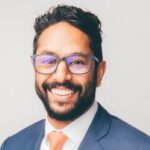 Kumar Raj is a program officer focused on economic equity for the W.K. Kellogg Foundation, which works with communities to create conditions for vulnerable children so they can realize their full potential. Kumar is an alum of TFN's 2018 PLACES Fellowship Cohort, which took place during his time leading the Skillman Foundation's grantmaking portfolio designed to increase the number of young people who meaningfully graduate from high school. He is based in Detroit.
Kumar Raj is a program officer focused on economic equity for the W.K. Kellogg Foundation, which works with communities to create conditions for vulnerable children so they can realize their full potential. Kumar is an alum of TFN's 2018 PLACES Fellowship Cohort, which took place during his time leading the Skillman Foundation's grantmaking portfolio designed to increase the number of young people who meaningfully graduate from high school. He is based in Detroit.
 Mark Tran is a program manager at The California Endowment based in San Diego. Mark manages special projects for the endowment's Programs & Partnerships department, which is responsible for the development and execution of The California Endowment’s strategic plan to help achieve racial equity in health in the state. Mark’s background in community development and organizing began with his post-Hurricane Katrina experience in East Biloxi, Miss., where he worked with historically Black and Vietnamese American communities. Mark is an alum of the PLACES 2022 Fellowship Cohort.
Mark Tran is a program manager at The California Endowment based in San Diego. Mark manages special projects for the endowment's Programs & Partnerships department, which is responsible for the development and execution of The California Endowment’s strategic plan to help achieve racial equity in health in the state. Mark’s background in community development and organizing began with his post-Hurricane Katrina experience in East Biloxi, Miss., where he worked with historically Black and Vietnamese American communities. Mark is an alum of the PLACES 2022 Fellowship Cohort.
Reelected Board Members
The slate of board candidates included eight sitting board members who were reelected to additional two-year terms:
Second Term
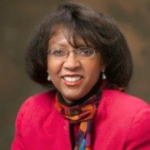 Chan Brown
Chan Brown
Director of Community Initiatives
Kansas Health Foundation and TFN PLACES Alum
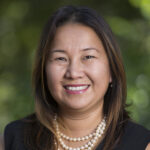 Kaying Hang
Kaying Hang
President
The Center at Sierra Health Foundation
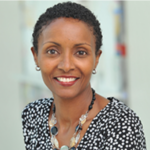 Janel M. Hines
Janel M. Hines
Vice President, Community Impact
Greater Milwaukee Foundation and TFN PLACES Alum
 Surabhi Pandit
Surabhi Pandit
Director, Diversity, Equity and Inclusion & Community Engagement
Community Foundation for Southeast Michigan and TFN PLACES Alum
Third Term
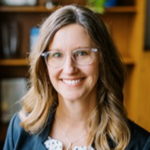 Karla Twedt-Ball
Karla Twedt-Ball
President & CEO
Greater Cedar Rapids Community Foundation
Fourth Term
 Jessica Boehland
Jessica Boehland
Senior Program Officer, Environment
The Kresge Foundation
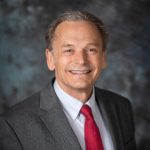 Don Hickman
Don Hickman
Vice President for Community and Workforce Development
Initiative Foundation
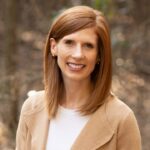 Elizabeth Love
Elizabeth Love
Chief Executive Officer
Jacob and Terese Hershey Foundation
Board Officers
The chairperson is elected to a two-year term; all other officers are elected for one-year terms.
Board Chair
 Sheena Solomon, executive director of The Gifford Foundation in Syracyse, N.Y., was named board chairperson. Sheena is a PLACES Alum and sits on the PLACES Advisory Board as well as the Partners for Places Governance Committee.
Sheena Solomon, executive director of The Gifford Foundation in Syracyse, N.Y., was named board chairperson. Sheena is a PLACES Alum and sits on the PLACES Advisory Board as well as the Partners for Places Governance Committee.
Vice Chair
 Surabhi Pandit, who leads community engagement and diversity, equity and inclusion efforts at the Detroit-based Community Foundation for Southeast Michigan, will serve as vice chairperson. Like Sheena, Surabhi is a PLACES Alum and sits on the PLACES Advisory Board.
Surabhi Pandit, who leads community engagement and diversity, equity and inclusion efforts at the Detroit-based Community Foundation for Southeast Michigan, will serve as vice chairperson. Like Sheena, Surabhi is a PLACES Alum and sits on the PLACES Advisory Board.
Treasurer
 Karla Twedt-Ball, president and CEO of the Greater Cedar Rapids Community Foundation in Cedar Rapids, Iowa, was selected to serve as board treasurer. Karla serves on the steering committee for TFN's Inclusive Economies working group and is a longtime member of our PPREP learning cohort.
Karla Twedt-Ball, president and CEO of the Greater Cedar Rapids Community Foundation in Cedar Rapids, Iowa, was selected to serve as board treasurer. Karla serves on the steering committee for TFN's Inclusive Economies working group and is a longtime member of our PPREP learning cohort.
Secretary
 Elizabeth Love, CEO of the Jacob and Terese Hershey Foundation, will serve as board secretary. Elizabeth, a Texas funder based in Houston, is a co-chair of the Mobility and Access Collaborative. She served on the planning committee for our recent convening in Austin, which brought together our GREEN, Urban Water Funders and Mobility and Access Collaborative working groups.
Elizabeth Love, CEO of the Jacob and Terese Hershey Foundation, will serve as board secretary. Elizabeth, a Texas funder based in Houston, is a co-chair of the Mobility and Access Collaborative. She served on the planning committee for our recent convening in Austin, which brought together our GREEN, Urban Water Funders and Mobility and Access Collaborative working groups.
With Gratitiude
 The January meeting of TFN's Board of Directors marked the final board meeting for longtime member Shawn Escoffery of the Roy and Patricia Disney Family Foundation, whose fourth term on the board ended in March.
The January meeting of TFN's Board of Directors marked the final board meeting for longtime member Shawn Escoffery of the Roy and Patricia Disney Family Foundation, whose fourth term on the board ended in March.
We're grateful for Shawn's dedication, good humor and hard work during his time on the board, which also included serving as co-chair of TFN's 2023 Annual Conference in New Orleans.
Board member Don Hickman of the Initiative Foundation also presided over his final meeting as chairperson, completing his two-year term in that position. Don remains on the board this year for a fourth term.
We'd also like to share our appreciation for the sitting board members who were not up for reelection this year:
- Isabel Barrios, Greater New Orleans Foundation
- Lisa Jacobson, Barr Foundation
- Nathaniel Smith, Partnership for Southern Equity
- Sheena Solomon, The Gifford Foundation
Thank you to all of our board members, past and present, for your service!
Call for Proposals: TFN's 25th Anniversary Conference
BY TFN STAFF
Do you have an idea for a conference session or workshop that will deepen learning, foster collaboration and catalyze action?
We invite you to submit a proposal for The Funders Network’s 25th Annual Conference: Be Bold Together, March 17-19, 2025 in Baltimore, Md.
Our 25th Anniversary Conference theme — Be Bold Together — emphasizes the need for courageous action and meaningful collaboration to correct injustices and deploy resources where they are most needed.
We look forward to coming together in Baltimore to delve into work that addresses the wellbeing of people and places facing an escalating climate crisis, erosion of civil liberties and pervasive economic inequities — all of which disproportionately impact low-income communities and communities of color.
→ Read our #TFN25 Conference Proposal Guidelines for more information on the types of sessions and workshops we're planning for Baltimore.
→ Submit your proposal through our Online Proposal Form.
→ Questions? Please reach out to Lesmarie Nicholson at lesmarie@fundersnetwork.org.
The deadline to submit is May 24
ABOUT #TFN25

We'll gather at the Renaissance Baltimore Harborplace Hotel, located on the city's scenic Inner Harbor.
Save the date for TFN's 25th Anniversary Conference, which takes place March 17-19 in Baltimore, Md.!
Registration will launch in the winter. Stay tuned for more details!
→ Curious about what we learned and shared at our last conference? Check out the full agenda and speaker list for TFN's 2023 Annual Conference in New Orleans here.
GROUNDED IN RACIAL EQUITY
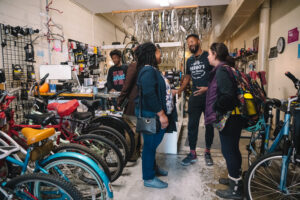
Funders at #TFN2023 had the chance to stop by the YEP (Youth Empowerment Project) Bike Works to learn how the non-profit is helping train and support local kids in the historically Black neighborhood of Center City.
Our conference planning committee and TFN team are encouraging session ideas that are interdisciplinary, cross-cutting and grounded in racial equity.
TFN’s Strategic & Racial Equity Frameworks share key strategies, our racial equity framework and action plan, and program priorities. Download a copy here.
Meet TFN's 2024 PLACES Fellows!
BY Dion Cartwright, TFN President & CEO
Today is one of my favorite days on The Funders Network’s calendar.
Each year since I’ve been part of TFN, I’ve greeted the day we announce the new cohort of PLACES Fellows with a sense of celebration – and not just because I’m a PLACES Alum myself.
It’s because today marks the beginning of an intense but empowering learning journey for a new group of exceptional leaders in philanthropy.
They’ll work together to deepen their understanding of structural racism. They’ll travel together to learn from community advocates, activists and those most impacted by injustice.
And they’ll challenge each other to unpack their own professional and personal biases.
These 16 new PLACES Fellows – who represent a wealth of expertise and lived experiences, and hail from diverse geographies and backgrounds – embody a core element of TFN’s guiding principle.
TFN’s vision is to cultivate generations of courageous philanthropic leaders who are engaged, emboldened and equipped to bring about a just society.
Over the past decade, PLACES, which stands for Professionals Learning About Community, Equity and Sustainability, has welcomed nearly 200 leaders in philanthropy committed to moving resources in service of environmental, economic and racial justice.
PLACES Alums are among the most passionate ambassadors for equity and justice in the sector, enriching their institutions and the field of philanthropy as a whole.
The PLACES Fellowship is designed to help grantmakers incorporate an equity and justice lens into their grantmaking and community engagement practices. Over the years, PLACES cohorts have addressed issues impacting disenfranchised communities, including gender justice, health equity, environmental sustainability and economic development — asking difficult questions and exploring uncomfortable truths.
I’m excited to see how the 2024 PLACES Cohort turns their eight months of learning into meaningful action and impact.
On behalf of the selection committee, TFN’s Equity Programs Manager Talissa Lahaliyed and the PLACES Advisory Board, join me in congratulating these outstanding 2024 PLACES Fellows!
2024 PLACES Fellows
About PLACES
The PLACES Fellowship is supported by The Funders Network and the generous contributions of various organizations. Key supporters include the JPB Foundation, Kresge Foundation, Loom Foundation and Surdna Foundation.
Fellows are selected during a highly competitive selection process that includes several key factors, including but not limited to:
• Applicants have demonstrated personal commitment to advancing racial equity personally or in their work.
• Their grantmaking institution’s organizational commitments (i.e., population served, equity commitments, organizational values, and support of communities of color and/or low-income communities).
• Applicant’s sphere of influence within the organization and beyond; and
• TFN’s intentional efforts to create cohorts that are geographically, demographically and culturally diverse of cohort.
Going PLACES Blog Series
After each PLACES site visit, we ask the Fellows to reflect on their experiences. Check out recent contributions from PLACES Alums in our Going PLACES blog series.
Questions?
If you would like to know more about PLACES, including ways your organization can invest in our equity-focused PLACES Fellowship and Alum Network, email Equity Programs Manager Talissa Lahaliyed at places@fundersnetwork.org.
About the Author
Dion Cartwrigh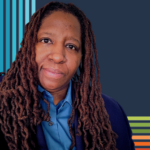 t is President and CEO of The Funders Network and a 2011 PLACES Fellow.
t is President and CEO of The Funders Network and a 2011 PLACES Fellow.
Be Bold. Be Courageous: Final thoughts on my last day at TFN
BY Pat Smith, President & CEO
How will I measure the more than five years I’ve been with The Funders Network?
In months? (67.)
In days? (2,020.)
By Zoom meetings? (Too many to count.)
However you do the math, the truth is my time with TFN can’t be quantified by any simple calculation.
And this network — its members and partners, its team of staff and contractors, its mission-driven work — is so much more than the sum of its parts.
As I wrap up my final day at TFN, I’m grateful for what we’ve accomplished together in the last five years: The network is a thriving and robust community of funders and allies that has grown — both in size, scope and resources — since I joined its ranks on July 2, 2018.
We’ve worked to explicitly center racial equity in all of our many programs and partnerships. We’ve created space for funders, both at in-person events and virtual learning sessions, to better understand and explore the connection between their specific funding areas and the systemic inequities that stand in the way of true progress. We’ve deepened our engagement with experts and advocates in the social sector to share opportunities for action and collaboration.
But I’m also humbled by the work that still needs to be done.
The Road Ahead
While TFN’s commitment to racial equity is foundational and cross-cutting, we can’t ignore that the values of diversity, equity and inclusion — the very tools needed to build a just and liberated future — are under assault.
The Supreme Court’s decision to overturn affirmative action in higher education, as well as legal and political broadsides attacking DEI programs in classrooms and boardrooms, worries me deeply.
I encourage you, as funders and allies deeply committed to the communities you serve, to use your collective voices — and institutional resources — to double down on the need to embed racial equity in your grantmaking.
Philanthropic decisions should include the voices of the people and communities most affected by structural racism, including those on the front lines of the climate crisis and those facing increasingly steep barriers to economic opportunity and mobility.
TFN member organizations have the power to advocate for policy change, fund research, convene changemakers, and amplify the lived experiences of those most impacted by systemic harm.
Together, you have the power to advance intersectional solutions that can help undo decades of disinvestment and under-resourcing in Black, Indigenous and other communities of color.
This work is critical to TFN’s mission, which is to leverage philanthropy’s unique potential to help create communities and regions that are sustainable, prosperous, healthy and just for all people.
That’s why it is essential that we, as a network and as a sector, must foster generations of courageous philanthropic leaders who are engaged, emboldened and equipped to bring about a just society.
I am honored to pass the baton to my colleague, TFN’s incoming President & CEO Dion Cartwright, who has proven herself to be both bold and courageous. Since my first day at TFN more than five years ago, I’ve known Dion to be an advocate for change in the philanthropic sector and one of the driving forces behind TFN’s explicit commitment to racial equity.
Heartfelt Thanks
I’m grateful to Dion and the rest of TFN’s talented team for their dedication and camaraderie over the past five years, including the challenges and disruptions we all faced at the height of the pandemic.
I’m also grateful for the counsel, support and leadership of TFN’s Board of Directors and our funder-led steering committees — and the countless other funders and partners who have volunteered their time in service of our mission.
And while I’ve promised myself (and my partner, Elbert) that I’ll try to embrace a Zoom-free future in my retirement, please know that you can always find me on LinkedIn.
I’m excited and hopeful to see what the future has in store for TFN.
Wishing you all a wonderful Martin Luther King Jr. Day and a joyful and just 2024.
Visits TFN Instagram to see some of our favorite memories of Pat's tenure.
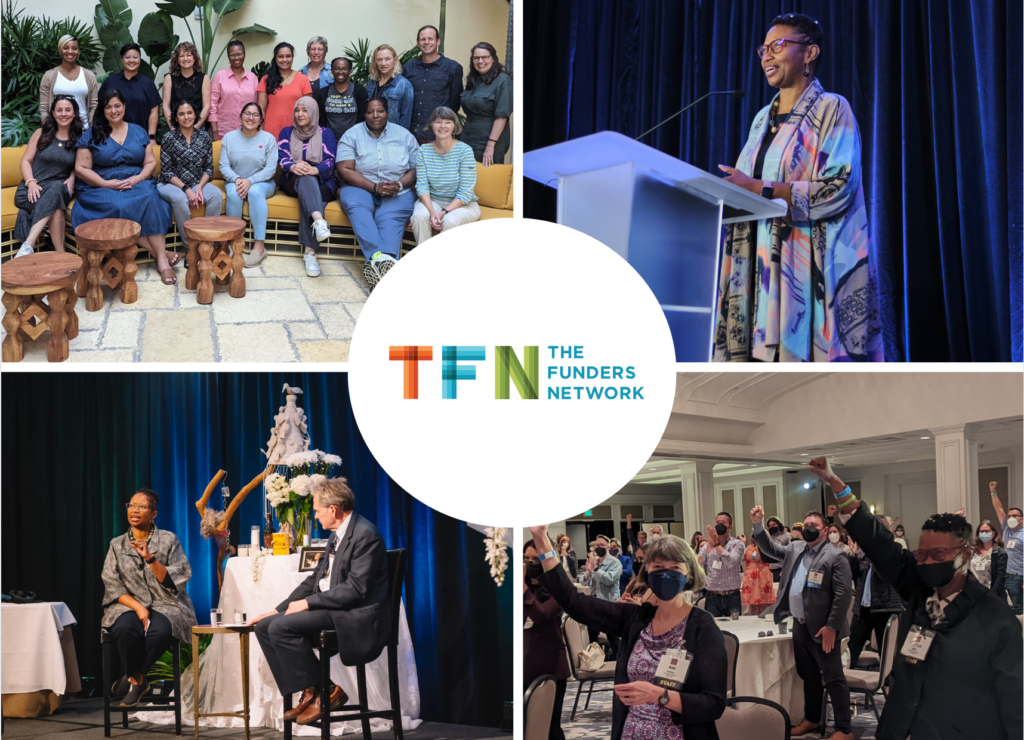
What's in store for 2024? Check out TFN events, professional development for funders & more!
BY TFN Staff
As we approach the New Year, we wanted to take a moment to thank our community of funders, partners and allies.
TFN is a diverse network of more than 130 foundations across the U.S., from small, rural community organizations to large urban foundations.
Our members reflect a broad spectrum of place-based philanthropic efforts — working to tackle the climate crisis, expand economic opportunity, improve health outcomes, reimagine built environments, safeguard civil liberties, and forge community power and collaboration.
But we’re connected by a common thread that runs through all of TFN’s many working groups, partnerships and learning cohorts: Our commitment to addressing the systemic racial inequities that stand in the way of building a more just and compassionate world.
This work can be complex and often frustrating, especially when we reflect on the many ways communities are challenged and marginalized people are oppressed — both at home and across the globe.
We hope this season offers a chance to connect with the people and places that bring joyful purpose to your work, and to reflect on the opportunities for change in the year to come.
TFN will be closed Dec. 25 to Jan. 2, but we're ready to kick off 2024 with events and programs designed to amplify your grantmaking impact, hone your professional skills and deepen your engagement with other leaders in the sector.
We'll also share insights and reflections as we move forward with TFN's leadership transition, bidding a fond farewell to our outgoing President & CEO Pat Smith and welcoming our colleague Dion Cartwright as she steps into her new role as head of the network.
If you're new to our community, we hope you'll take a moment to explore our work and learn about the benefits of joining TFN's membership.
Read on to learn more about just a few of the things we have in store for 2024!

We’re excited for our Spring Convening of funders engaged in TFN working groups focused on climate and sustainability, urban water issues, and transportation, mobility and access.
Newcomers are welcome! Any funder interested in these focus areas is invited to attend the convening, which takes place March 27-28 in Austin, Texas. Click here for registration rates, lodging and other info.

Applications for the 2024 PLACES Cohort are now open! TFN’s PLACES Fellowship is an eight-month learning journey designed to help grantmakers embed the values and practices of environmental, economic and racial justice into their work. The deadline to apply is Jan. 5, 2024. Learn more and access the application here.
More PLACES news:
- Mark your calendars for a three-part leadership coaching series March 8, 15 and 22 from 1-2:30 p.m. ET/ 10-11:30 a.m. PT with Bina M. Patel, PLACES alum and facilitator, and author of Say The Quiet Part Out Loud: Liberate Your Inner Changemaker. Keep an eye out for registration info in early January.
- PLACES is launching a virtual commuity of practice for PLACES alums in executive positions. Participants will meet bi-monthly starting in February. Please fill out this interest form if you’d like to participate and we'll get back to you with next steps.
- Save the date for the 2024 PLACES Alum Gathering, Aug. 8-9 in Chicago!

TFN, in partnership with the Urban Sustainability Directors Network (USDN), has openned the latest round of the Partners for Places grant program.
The deadline to submit proposals is Feb. 27.
This matching grant program improves communities by supporting equitable sustainability projects that build partnerships between local government leaders, frontline community groups and place-based funders in the U.S. and Canada.
Learn more about the latest grant opportunity and application requirements.
More Partners for Places resources:
- Register for our Round 21 Informational Webinar designed to help potential applicants prepare proposals, Jan. 17 at 3 p.m. ET.
- Learn about Partners for Places grantmaking impact in 2023.

Smart Growth California’s Funder Summit takes place March 4-6 in Sacramento. The Summit is where California-focused funders share, learn and collaborate on work that advances a common vision – creating sustainable, equitable communities across California’s diverse landscape. Register here.
More Smart Growth California events:
- Smart Growth California's LA Funders' Collaborative meets Jan. 26, and the Climate Funders' Collaborative (Baja, Imperial, San Diego) meets Jan. 29. Reach out to Ron Milam for more information.

Coming soon!
Stay tuned for the premiere of Reel Change: A TFN Virtual Film Series — our first ever virtual film series showcasing documentaries and short films focused on racial, social and environmental justice.
The series kicks off in 2024 and will include virtual conversations with filmmakers, activists and funders focused on storytelling and narrative change.

Don't forget to sign up for TFN's Member Portal!
This password-protected, member-only portal is designed to support collaboration, deepen understanding and spark connections within our network and beyond.
Our peer-to-peer platform will allow TFN members to access a searchable database of funders and learning resources and recordings. You'll also be able to update your individual TFN profile and engage with our working groups.
How do you access TFN's Member Portal? Just fill out our simple sign-up form. You'll then receive a welcome email with your username and login instructions.
We look forward to staying connected in 2024!
"Holiday background with a sparkler" by wuestenigel is licensed under CC BY
Want to increase your grantmaking impact and revitalize local news flows? Consider funding local media collaboratives
The Funders Network is committed to sharing the stories and strategies of our members, partners and others in the philanthropic sector working to create more sustainable, prosperous and equitable communities. Today, we’re sharing a guest blog post from the Solutions Journalism Network and Center for Cooperative Media at Montclair State University highlighting philanthropic support to local news collaboratives, including work funded by TFN members Springpoint Partners, the Ralph C. Wilson Jr. Foundation, and the Walton Family Foundation. Solutions Journalism Network is also supported in part by the Robert Wood Johnson Foundation, another TFN member.
BY Liza Gross, Solutions Journalism Network, and Stefanie Murray, Center for Cooperative Media at Montclair State University
It’s no secret the journalism industry has endured massive, foundation-shifting changes over the last few decades.
The rise of search engines, the advent of social media and even the recent growth of machine-learning and artificial intelligence have all fundamentally changed the way people find, consume and understand news and information. The media landscape is fractured; mass media is no more. Societies today share information through multiple channels, in constant streams.
This is a key reason why collaboration has become so important in the media landscape. Fifty years ago, most cities had perhaps a handful of news sources: A newspaper, maybe a TV station and magazine or radio station. Today those options have been joined by news nonprofits, hyperlocal digital websites, active Facebook groups, local newsletters, texting groups and more.
Journalism collaboratives are an effective way to knit those sources together and help direct their efforts in ways that have broad, positive community impact.
There are at least 40 permanent journalism collaboratives in the United States alone, according to research from the Center for Cooperative Media at Montclair State University. The collaboratives are usually run by a project manager and include all kinds of journalism partners as well as community-based organizations, multicultural outlets and other local institutions. Their work is often project-focused, and the Center has found the projects often have a solutions, humanitarian, democratic or investigative angle.
The majority of U.S. journalism collaboratives have been launched and supported by philanthropic funders — those who realize that investing in local news and information is an important way to spread their impact across multiple parts of a community.
The most notable example of this investment is the Solution Journalism Network’s Local Media Project, which includes more than a dozen collaboratives coast-to-coast, and nearly all of them have attracted local philanthropic dollars.
Award-winning Resolve Philly is one of the longest-running local media collaboratives, involving more than 29 news and community organizations. In 2016, it launched the Reentry Project focused on the challenges and solutions to prisoner reentry and recidivism – critical issues facing Philadelphia – which resulted in local and statewide policy change. The collaborative went on to create Broke in Philly covering issues of poverty and economic mobility; Equally Informed Philly, to bridge the city’s information divide by providing text and place-based news and information delivery; and Shake the Table, a new initiative aimed at elevating community voices and priorities in the local policy-making process. Funders supporting Resolve Philly include Springpoint Partners and Samuel S. Fels Fund – both focused on advancing social, racial and economic justice in Philadelphia.
In Charlotte, North Carolina, seven news organizations and three community partners came together in 2019 to create the Charlotte Journalism Collaborative focused on addressing housing affordability. In addition to its reporting in English and Spanish, the collaborative regularly hosts in-person and virtual town halls, panels, and one-on-one talks with housing advocates and community members to help identify issues and solutions to the housing crisis and other pressing community needs. Housing justice funder DreamKey Partners is one of the collaborative’s supporters.
The Great Salt Lake Collaborative is a group of 21 news, education and media organizations that came together to better inform and engage the public about the crisis facing the Great Salt Lake — and what can be done to make a difference before it is too late.
Now in its fifth year, SJN’s Local Media Project has launched 15 local media collaboratives – including those noted above – with support from the John S. and James L. Knight Foundation and the Ralph C. Wilson Jr. Foundation. These collaboratives have gone on to raise $12 million in additional funding over the past five years. The Center tracks which donors are supporting collaboratives and in 2021 published a list of funders behind 40 U.S. collaboratives. The list includes big-name funders such as the Walton Family Foundation, Chan Zuckerberg Initiative, Microsoft Philanthropies, and the Bill & Melinda Gates Foundation.
It’s not just the bigger foundations that are putting support behind collaborative media projects. We are heartened to see more place-based funders – those with an even greater interest and stake in uplifting their respective communities – investing in local media collaboratives, such as the Wichita Foundation, which helps fund the Wichita Journalism Collaborative, and Kalamazoo Community Foundation, which supports the Southwest Michigan Journalism Collaborative.
Funders interested in supporting local media collaboratives should look for the characteristics that make a successful partnership. These include putting community needs first, cultivating a high degree of trust among members, and committing to the collaborative as an entity – what researchers at Columbia Journalism School call the “scaffolding” for a successful collaborative.
We also encourage funders to invest in research on collaboratives to advance the field.
To rebuild the fractured media landscape and support reporting that makes a positive impact on communities, we need to look to local media collaboratives. Funders must understand and invest in this proven approach to revitalizing and reimagining local information flows.
About the Authors
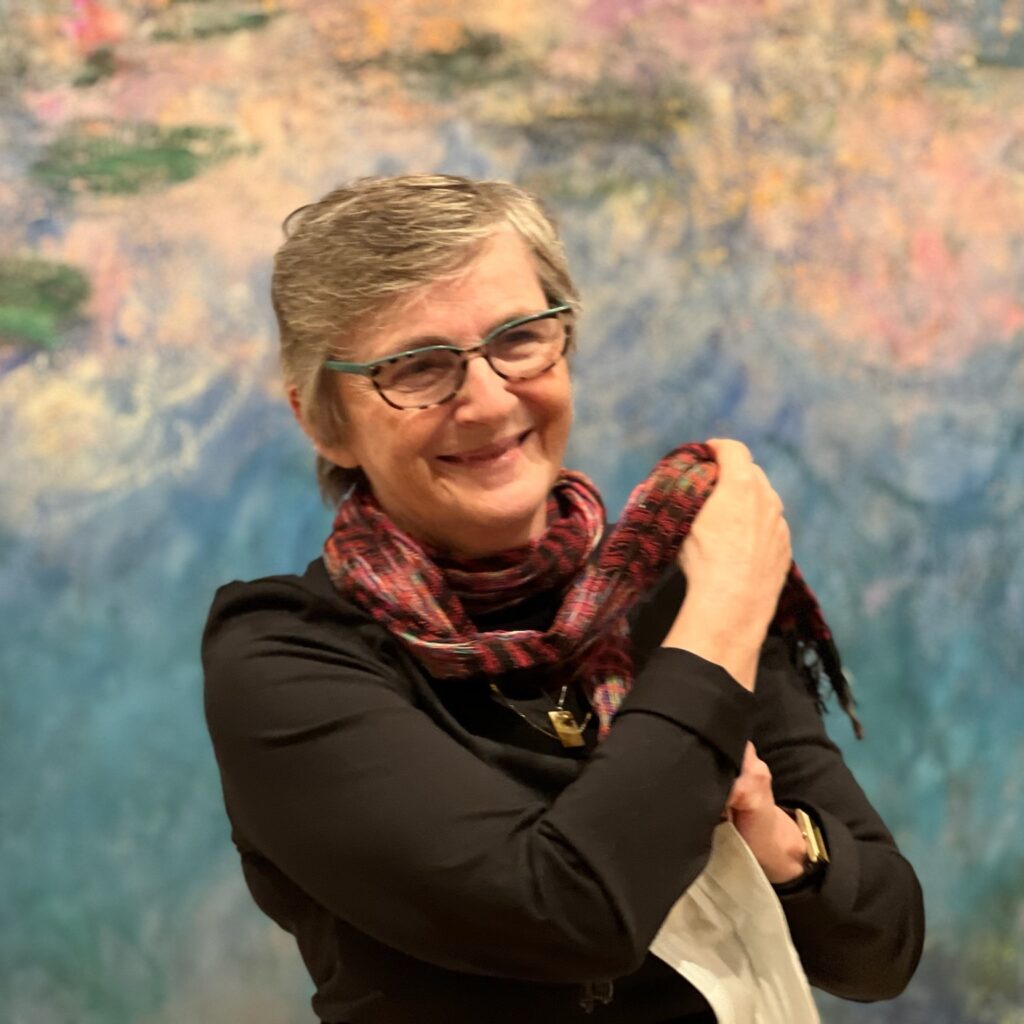
Liza Gross is senior advisor at Solutions Journalism Network. She created and launched SJN’s Local Media Project.
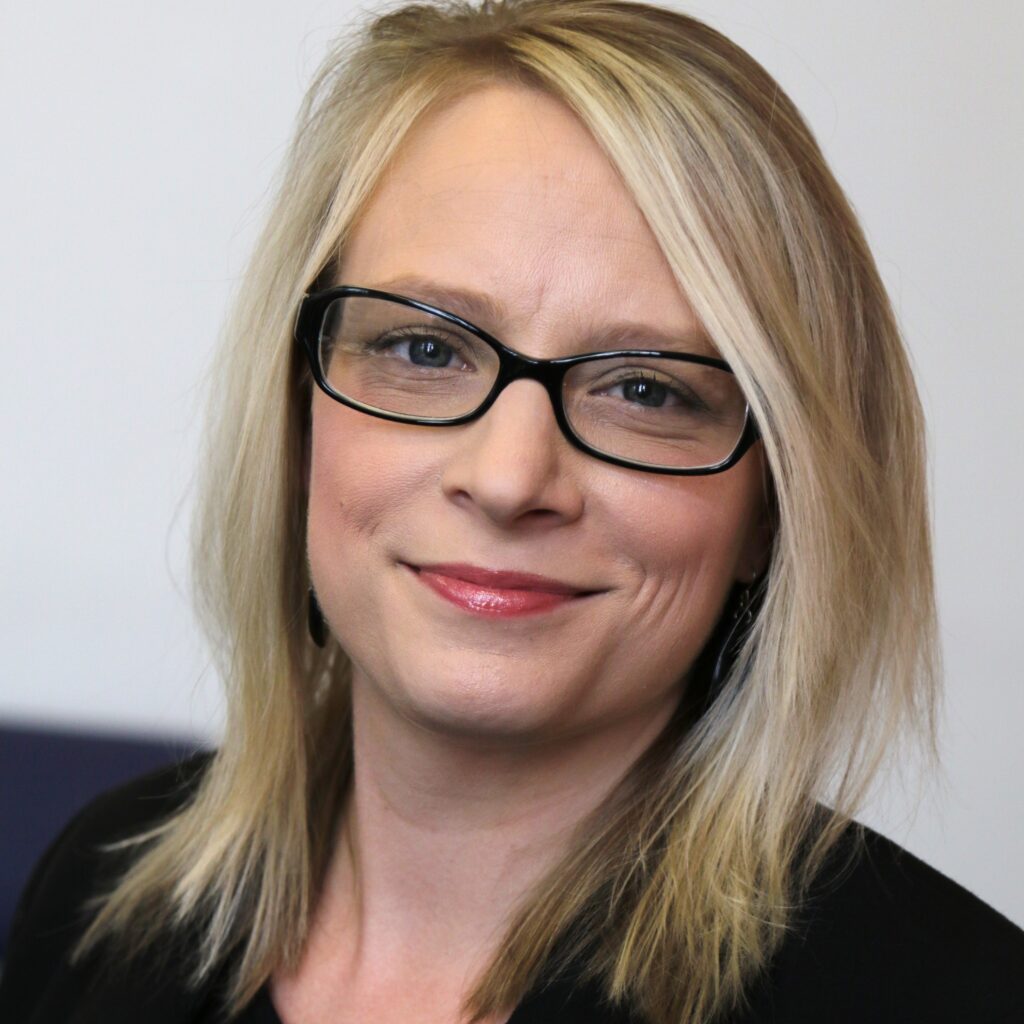
Stefanie Murray is the director of the Center for Cooperative Media at the School of Communications and Media at Montclair State University.
Featured Photo: 38996496 / Social Media News © Solarseven | Dreamstime.com
New Grant Opportunities: Partners for Places Applications Now Open!
BY TFN Staff
The Funders Network (TFN), in partnership with the Urban Sustainability Directors Network (USDN), is pleased to announce the opening of the latest round of the Partners for Places grant program.
The deadline to submit proposals is Feb. 27.
The Partners for Places matching grant program improves communities by supporting equitable sustainability projects that build partnerships between local government leaders, frontline community groups and place-based funders in the U.S. and Canada.
National funders invest in local projects developed through these partnerships to promote a healthy environment, a strong economy and well-being for all residents.
Through these investments, Partners for Places fosters long-term relationships that make our communities more resilient, prosperous and equitable.
These matching awards provide partnership investments between $45,000 and $150,000 for one-year projects, or between $75,000 and $180,000 for two-year projects. One or more local foundations are required to provide at least a 50 percent matching grant for projects.
Interested in applying?
Access the application and resource documents below. (These resources are also available on our Partners for Places home page.)
Round 21 Application and Resources
- Invitation to Apply
- Application Form
- Budget Form
- Informational Webinar | 3 p.m. ET Jan. 17: Register here.
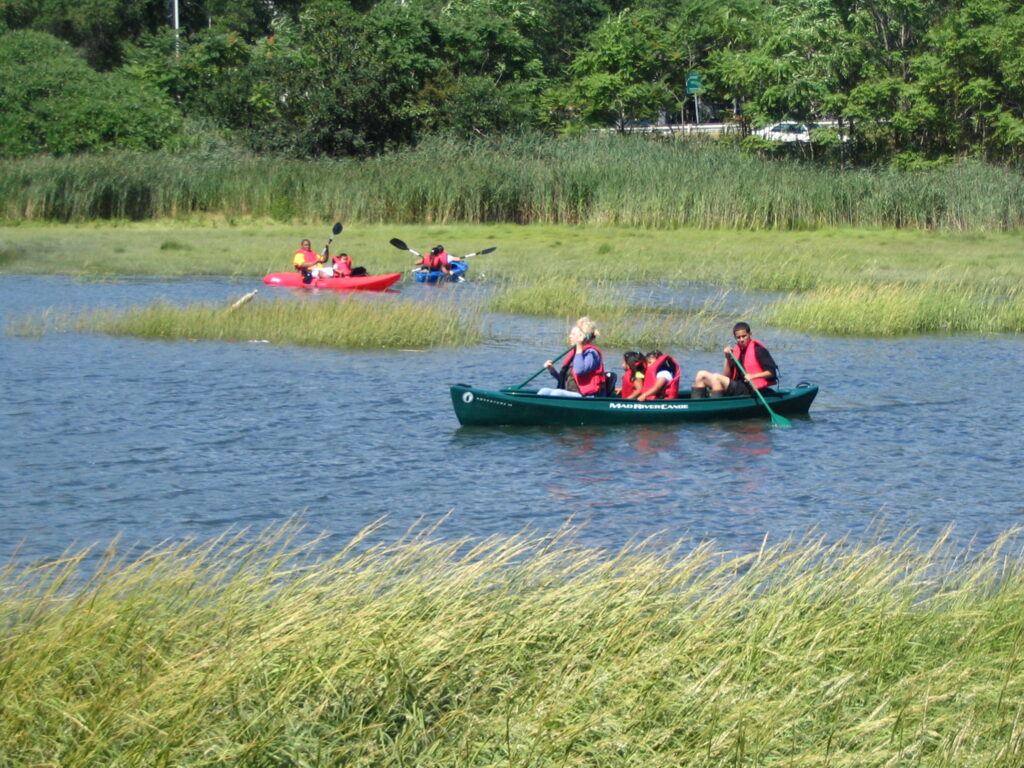
Partners for Places funds will help Chelsea, Mass. turn the Mill Creek waterfront into a vibrant and accessible area for passive and active recreation. Source: GreenRoots
About Partners for Places
Partners for Places is led by TFN in partnership with the USDN.
To date, Partners for Places has awarded $10.9 million across North America in this successful matching grant program, leading to more than $21.6 million in investments.
The matching grant program brings national funder investors together with place-based funders to support equitable and sustainable climate action and green stormwater infrastructure projects. The program is currently supported by four investor foundations: The JPB Foundation, The Kendeda Fund, The Kresge Foundation, and the Pisces Foundation.
Read about the latest round of Partners for Places matching grant recipients here.
(All grant announcements can be found on the Partners for Places webpage.)
Read about previous rounds of grants under the Meet the Grantees section of the Partners for Places page.
Submitting a Successful Proposal
Round 21 general grant funds will support:
1. Spreading of local Equitable Climate Action (ECA) and/or Green Stormwater Infrastructure (GSI) practices.
2. Advancing opportunities for local government, frontline communities, and place-based funders to build trusting partnerships and develop projects together.
The application deadline for Round 21 is Feb. 27 (by 11:59 p.m., any time zone).
Please visit the Partners for Places webpage for more information.
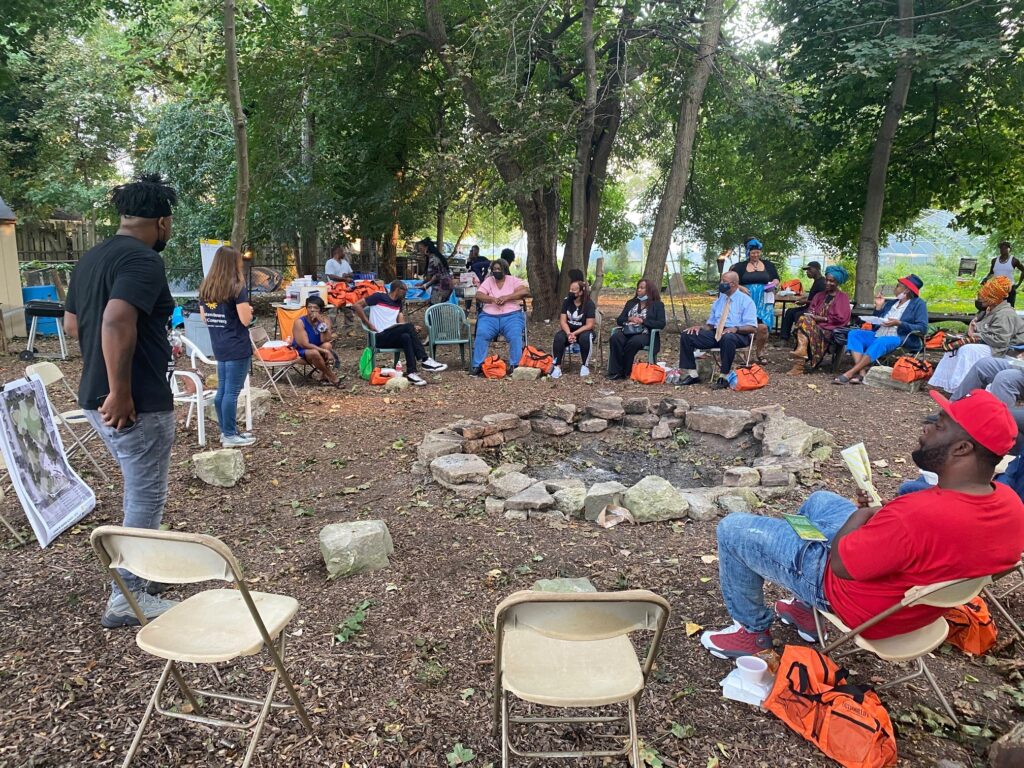
Hough community members gathered in Cuyahoga County to share their thoughts on plans to turn the site of a former primary school into a 2.6-acre park. Credit: Western Reserve Land Conservancy
Additional Resources
→ Register for our Round 21 Informational Webinar designed to help potential applicants prepare proposals, Jan. 17 at 3 p.m.ET. Register here.
→ Read this feature story about Partners for Places in Inside Philanthropy here.
→ If you have questions about the Partners for Places program, please feel free to reach out to Ashley Quintana at ashley@fundersnetwork.org.
→ Where is Partners for Places making an impact? Read previous grant announcements and explore the Partners for Places Grantee Map here.
→ Where can I learn about completed Partners for Places projects?
Visit the Partners for Places Idea Bank to explore what grantees are doing, learning and sharing.

